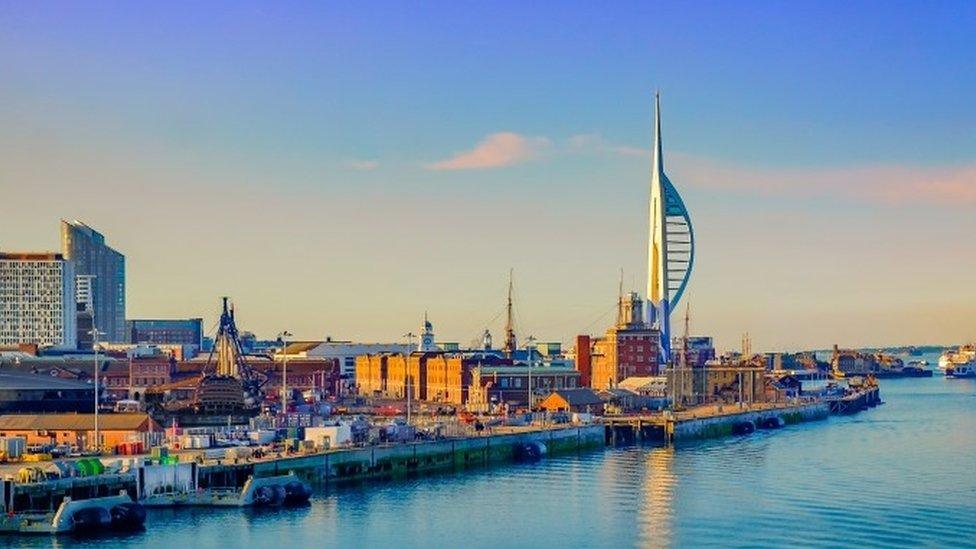Portsmouth's new clean air zone: No conclusions after one year
- Published
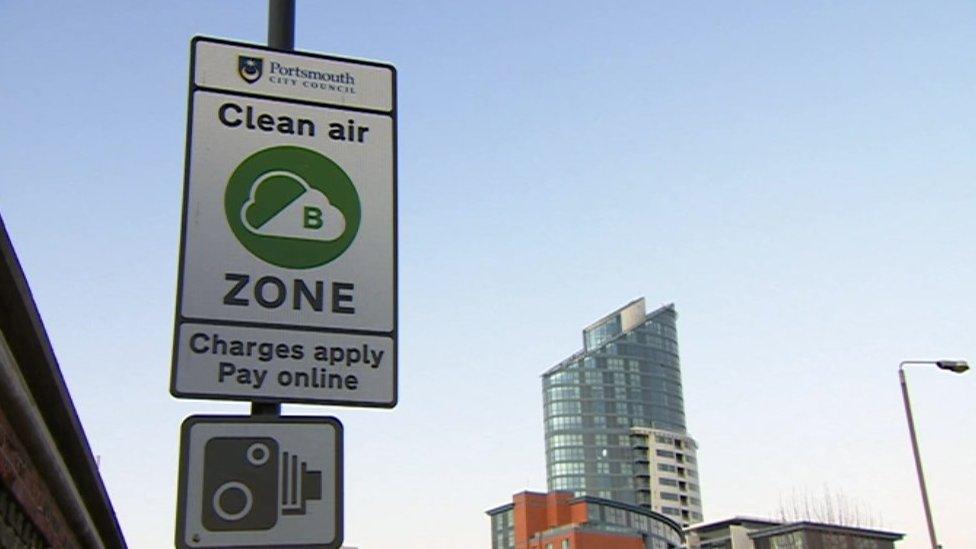
The Clean Air Zone covers an area of about 3km2 in Portsmouth
It is too early to say if a city's clean air zone is making a difference a year after it came into force, a council has said.
High-polluting private hire vehicles, taxis, buses, coaches and lorries have been charged a fee since November 2021 for entering Portsmouth city centre.
Each day fees for about 44 vehicles are paid and 14 penalty notices are issued.
The council leader said there needed to be more data to make an assessment of its impact on air quality.
Under the scheme, initially planned to last two years, older private hire vehicles and taxis are charged £10, while buses, coaches and lorries face a £50 fee to enter an area of the city centre.
Private cars, motorcycles and vans are not included in the daily charges.
The council said less than one tenth of 1% of vehicles were having to make payments.
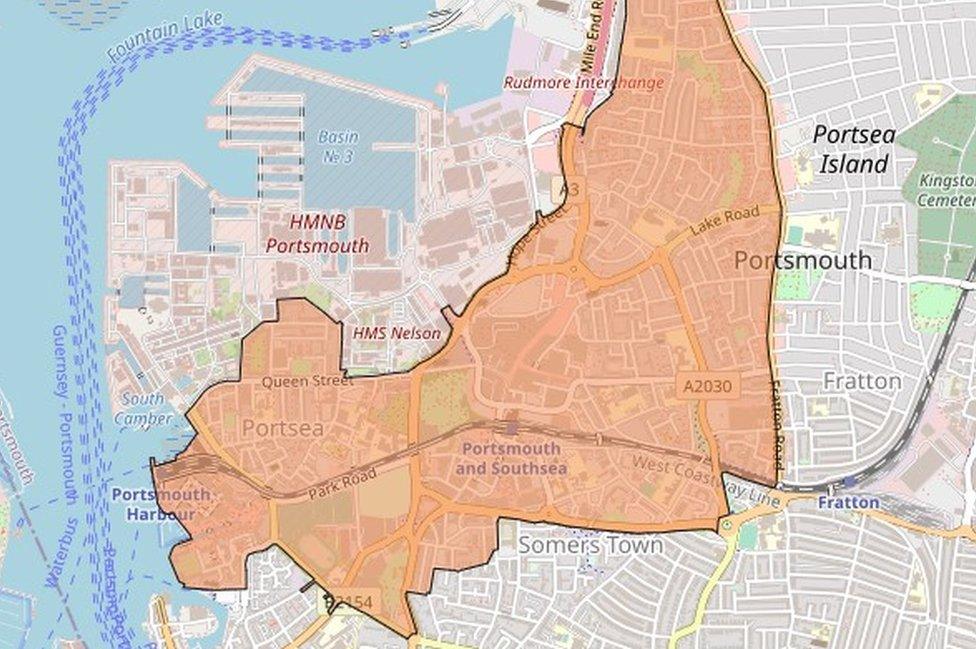
Automatic Number Plate Recognition (ANPR) cameras monitor vehicles driving in the zone
Council leader Gerald Vernon-Jackson admitted "we don't know if it's having an effect - it might be, it might not".
"We think that air quality rates are getting better - the readings are looking a bit better, but we won't know how until we get all the data in and we won't get that for a few months," he added.
He said "not very many people at all" had been caught on cameras for penalty charges.
Meanwhile, Wightlink ferries warned the zone was forcing vehicles from the Isle of Wight to avoid Portsmouth, when travelling to the mainland.
Chief executive Keith Greenfield said: "Some of the smaller operators have been caught and the coach companies, particularly, tend to have older vehicles and we've had requests from them to move to alternative routes, to Lymington-Yarmouth, which is what we don't want to see as they are driving extra miles."
Automatic Number Plate Recognition (ANPR) cameras are being used to spot vehicles that do not meet standards, external.

Analysis
By Paul Clifton, BBC South transport correspondent
Portsmouth's city centre exceeds national air quality limits.
Here's the problem - only a quarter of the harmful nitrogen dioxide emissions in Portsmouth air comes from road vehicles, much more comes from shipping.
And of the pollution caused by road traffic, three-quarters comes from cars and they are not part of the clean air charging scheme.
Low-emission zones are not consistent across the country - taking an old diesel car into London incurs at £12.50 charge, but even the oldest, most-polluting banger of a private car costs nothing in Portsmouth.
The council believes air quality is improving gradually, regardless of the charge, and the system can be turned off within a handful of years.

Follow BBC South on Facebook, external, Twitter, external, or Instagram, external. Send your story ideas to south.newsonline@bbc.co.uk, external.
- Published26 January 2022
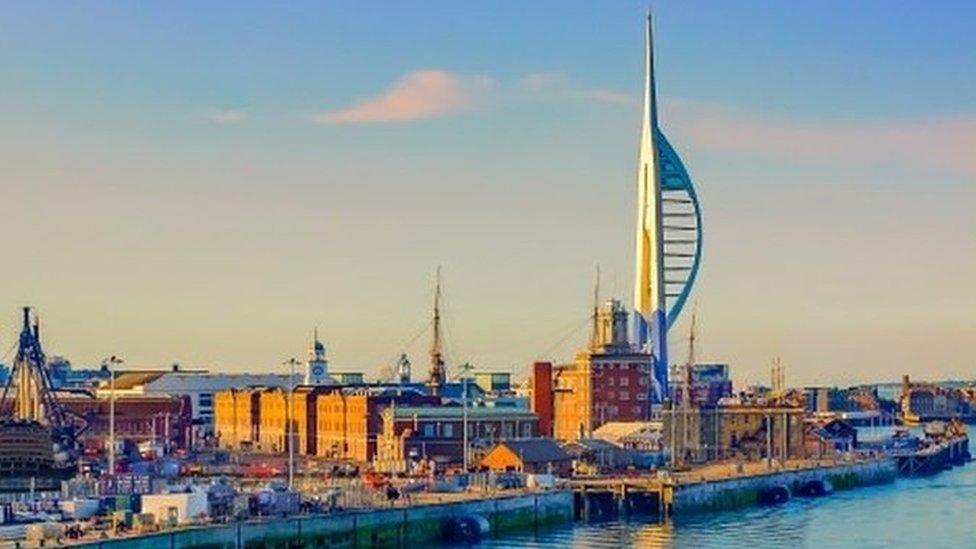
- Published29 November 2021
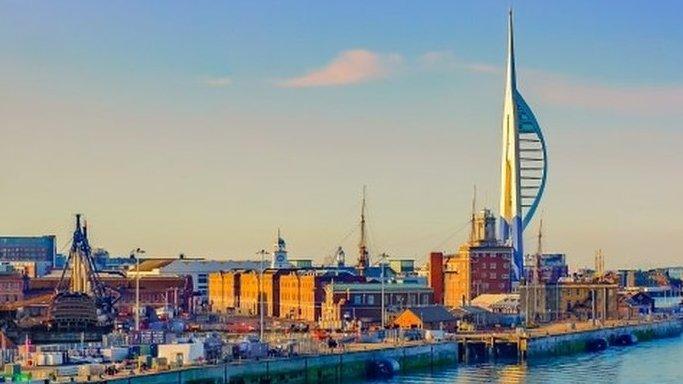
- Published26 October 2021

- Published29 September 2021

- Published25 March 2021
